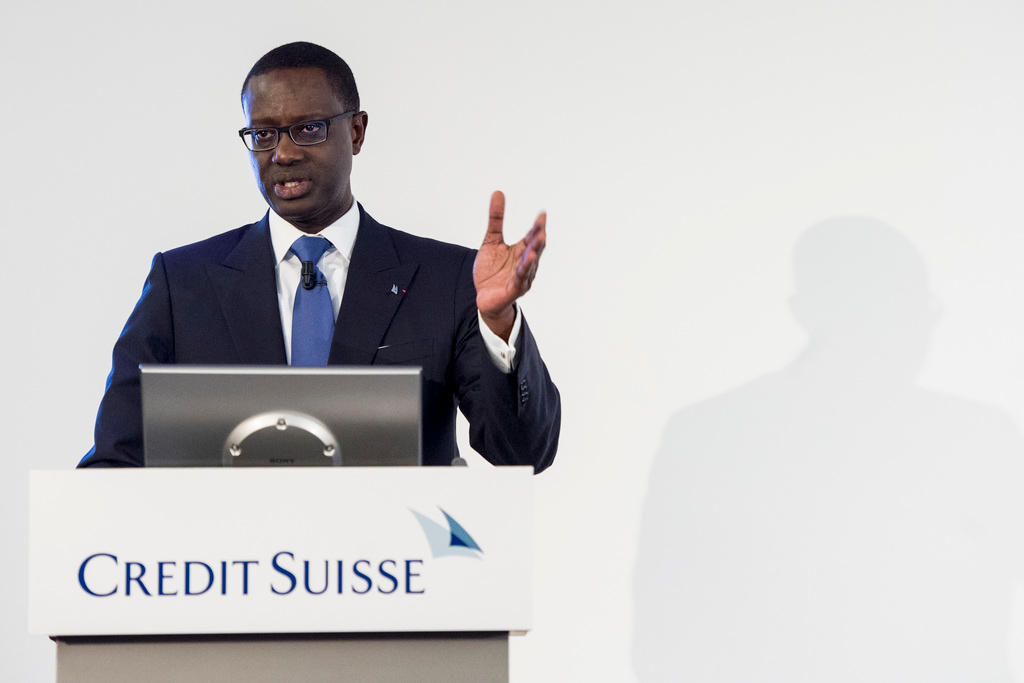Credit Suisse plots course for float of Switzerland unit

With profits under pressure in turbulent financial markets, investing in a European bank is not for the faint hearted. Thomas Gottstein thinks he has the answer: simplicity.
“Here you have a relatively boring – in the good sense – Swiss bank, focused on Switzerland. It is probably much easier to understand,” says the head of Credit Suisse’s domestic operation, which is scheduled for stock market flotation by the end of next year.
Mr Gottstein’s comments give a first indication of how Switzerland’s second-largest bank will pitch next year’s planned sale of a stake in Credit Suisse Switzerland, which officially came into legal existence on Sunday.

More
Financial Times
External linkAssuming market conditions allow its launch, the initial public offering would not only be one of the largest market debuts of 2017 in Europe, raising as much as SFr5bn ($4.95bn), according to analysts’ estimates. It will be a test of investor sentiment towards European banks and the strategic overhaul of Credit Suisse launched last year by Tidjane Thiam, Credit Suisse’s global chief executive.
Core strategy
Mr Thiam – who in September described European banks as “not really investable as a sector” – is expanding Credit Suisse’s wealth management activities across China and emerging markets, and shrinking its investment bank business. But he says a listing of the Swiss domestic unit will help strengthen the group’s capital buffers and boost the parent company’s value.
Mr Gottstein argues Credit Suisse’s domestic operations were in the past “under invested”. The bank was obliged to create a Swiss legal entity under post-financial crisis “too big to fail” rules to protect taxpayers. But the lender has sought to make a virtue out of a necessity, he says.
Between 20 and 30 per cent of Credit Suisse Switzerland will be floated – enough to join the Swiss share index while ensuring the group retains control. Any temptation to boost the bank’s coffers further by raising more capital is being resisted. “There’s no intention whatsoever to do that.” Nor would Credit Suisse contemplate selling the Swiss unit. “That is definitely not envisaged, no . . . Credit Suisse Switzerland is core to the group strategy,” says Mr Gottstein.
Pragmatic solution
What investors will buy into is a “universal bank” serving retail and corporate clients. At regulators’ request it will exclude risky trading operations. Unlike many other Swiss banks, it will serve principally Swiss-domiciled clients. That will bring operational benefits, says Mr Gottstein: “There are less cross-border compliance procedures. The goal is to become a simple, pragmatic bank for Swiss-domiciled clients.”
With few exceptions, non-Swiss clients will be served by the Asian and international wealth management divisions of the Credit Suisse parent – which Mr Gottstein is keen to point out is also a Swiss bank.
Stressing the new bank’s Swiss-ness might help win international investors. But there is a downside: as a mature European economy, growth opportunities are limited.
Tough market conditions, meanwhile, will make it even harder for Mr Gottstein’s Swiss unit to achieve its target of SFr2.3bn in pre-tax income by 2018. Andreas Venditti at Vontobel describes the goal as “ambitious”.
Mr Gottstein plans annual cuts of about SFr100m from Credit Suisse Switzerland’s SFr3.6bn-a-year cost base, through automation as well as fewer staff.
Revenues, however, have been hit by low client activity in volatile financial markets before and after the UK’s Brexit vote in June, and the run-up to this month’s US presidential election. Third-quarter results show “we are on track on the cost side but we are not yet on track on the revenues”, Mr Gottstein says.
Negative interest
Another worry is the corrosive impact of negative interest rates – Switzerland’s central bank has had an official policy rate of minus 0.75 per cent since the start of last year. Like other banks, Credit Suisse has compensated for the increased costs of managing deposits by expanding its lending business. But it is a fragile balancing act. “It is never good if you subsidise one set of products with another,” Mr Gottstein says.
Nevertheless, Switzerland’s political stability and economic strengths make it an attractive location for the world’s rich as well as companies, Mr Gottstein believes.
Where his bank will have an advantage over rivals, he argues, is in leveraging other parts of Credit Suisse.
While clients will be Switzerland based, “we want to offer them a globally integrated bank”. He cites the example of AC Immune, a Lausanne-based biotech company which Credit Suisse helped take public in New York. “That’s something 99 per cent of our competitors can’t do here in Switzerland.”
Another advantage of its own IPO is that shares in the bank would become a “currency” for acquisitions. For Mr Gottstein, shaking up the Swiss banking system is not a priority at the moment, but “if you look at the next five to 10 years, I definitely expect further bank consolidation to happen in Switzerland, and I want to be part of it.”
Copyright The Financial Times Limited 2016

In compliance with the JTI standards
More: SWI swissinfo.ch certified by the Journalism Trust Initiative



You can find an overview of ongoing debates with our journalists here . Please join us!
If you want to start a conversation about a topic raised in this article or want to report factual errors, email us at english@swissinfo.ch.